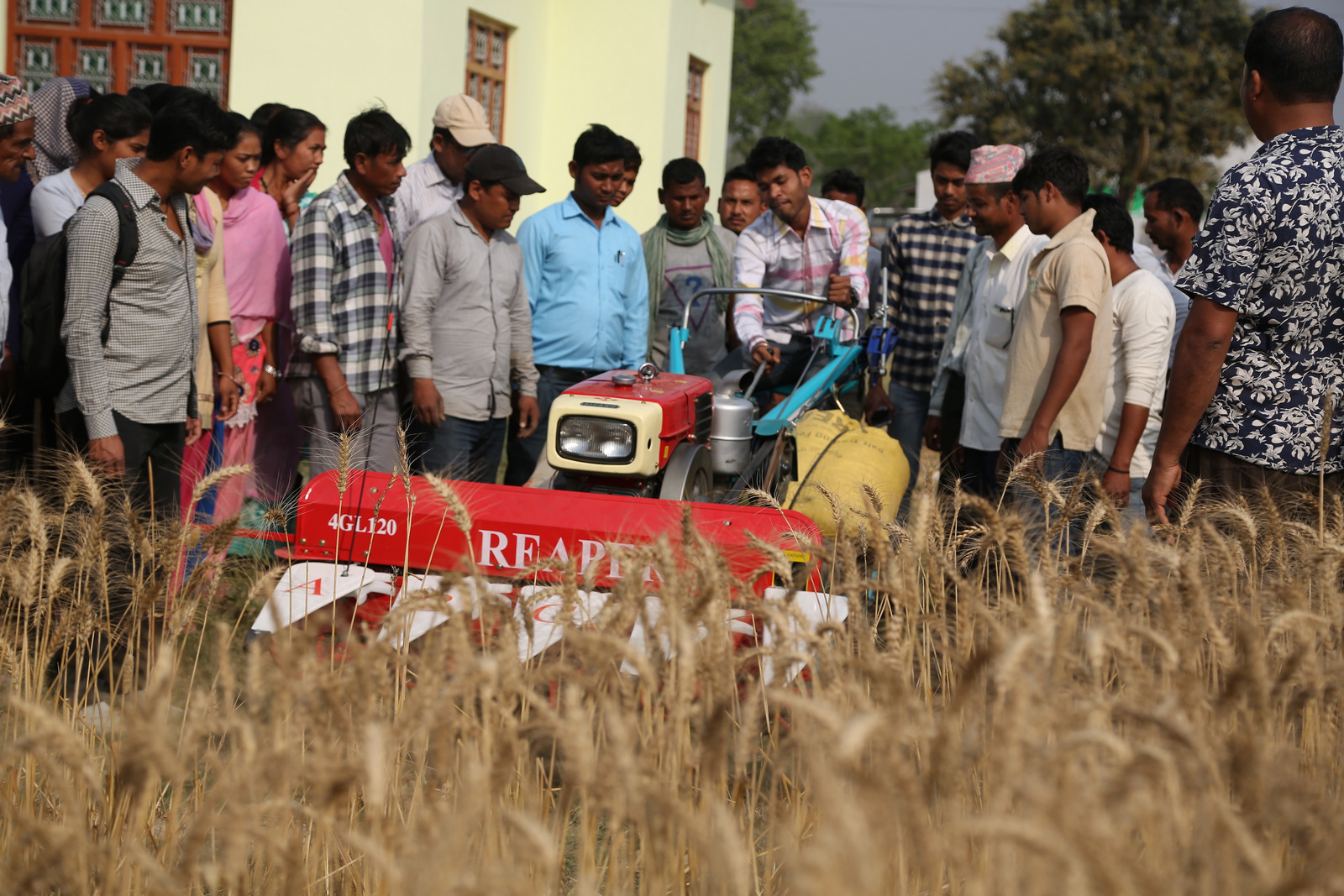New video highlights value of mechanization in Nepal
CSISA has launched a new video highlighting the value of scale-appropriate mechanization and the benefits of service provision in Nepal. Featuring farmers who have adopted technologies such as seed drills, power tillers, mini tillers and reapers, the video highlights that mechanization can save time and costs and reduce drudgery. Participating farmers also point out that extra income can be made from becoming a service provider and that this extra income can help reduce incentives for Nepal’s youth to go abroad looking for work.
Khumlal Chaudhary, a service provider in Rupandehi, says in the series, “I am extremely busy [providing services to other farmers]. It gets so hectic that I have to switch off my phone sometimes. […] I now have two sources of income. I am a farmer so I make income from what I grow in my fields. I also provide services with my tractors and the seed drill machine. The two activities help me make a good living.”
Yogendra Chaudhary says that since he and his son are able to make money through service provision, his son decided to remain in Nepal to work on the family’s farm instead of seeking employment abroad, and that the machines allow them to remain together, work together and prosper together.
Sutra Media Works and the CSISA team hosted video showings in four of CSISA’s working domains so that farmers, potential service providers, self-help groups and Nepal government representatives could see the film, ask follow-up questions and discuss locally relevant issues raised by the video. These community video showings were preceded by farmers’ field days and demonstrations of sustainable intensification technologies, and were followed by question and answer sessions.
Shown in Baridya, Dang, Kailali and Kanchanpur districts with 296 attendees (including 72 women), the video was well received and generated discussion about the following preconditions for mechanization to spread broadly: (1) increased awareness of agricultural technologies and their providers at the local level, (2) technical training on how to use the equipment, (3) availability of spare parts and repairs for fixing machines, and (4) mechanisms to make the cost of technology and services affordable for farmers.
Attendees included farmers, service providers, machinery traders and public sector representatives from the Nepal Agricultural Research Center, as well as the Prime Minister’s Agriculture Modernization Project, representatives from the Wheat and Rice Zones and “Super Zones.” CSISA is currently sharing the video with relevant governmental and non-governmental agricultural programs, as well as with relevant video sharing websites and broadcast and cable TV outlets, to broadly disseminate important messages about mechanization and service provision throughout Nepal.
Author: Cynthia Mathys
